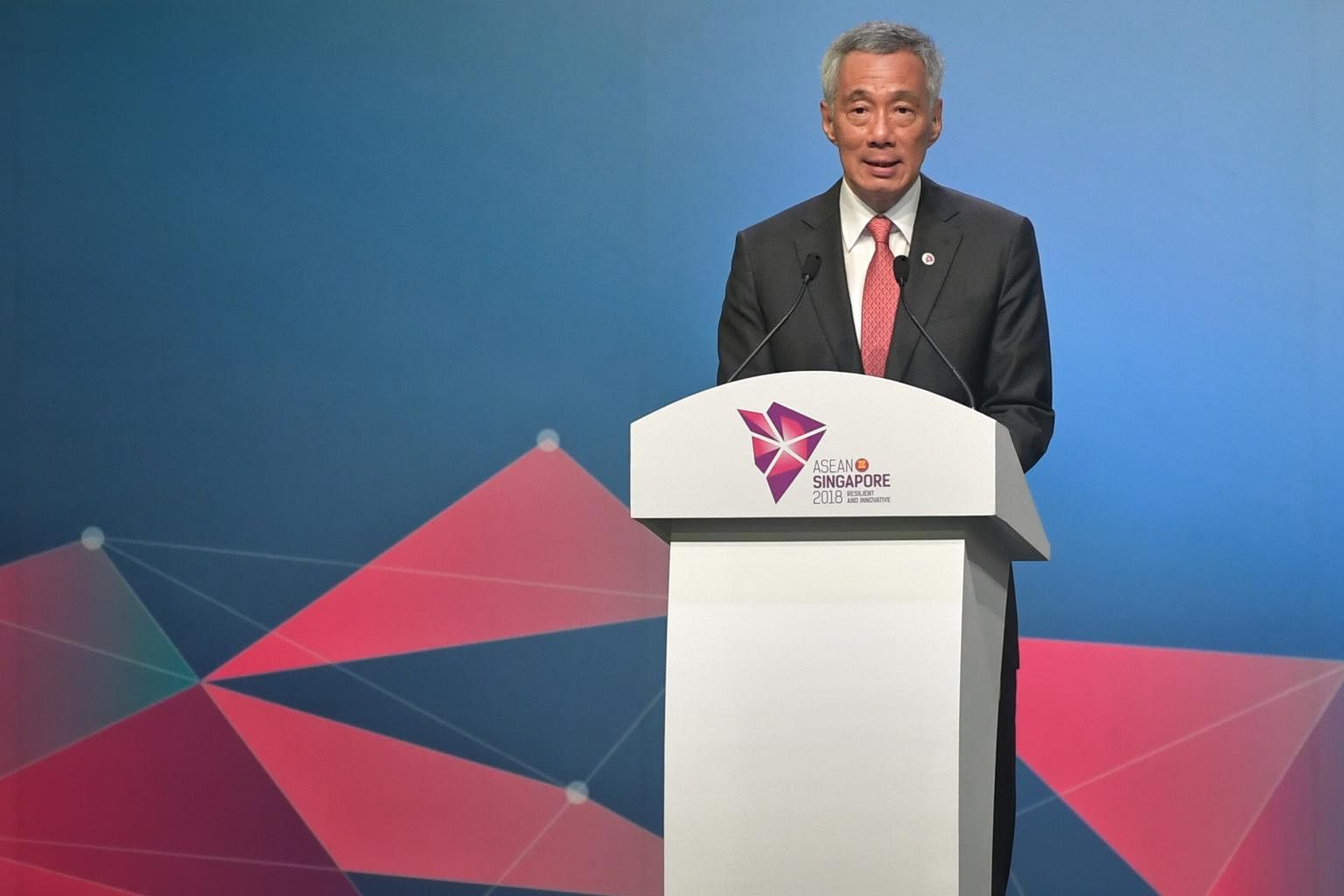Multilateralism a core factor in ensuring Asean's growth and stability: PM Lee
Sign up now: Get ST's newsletters delivered to your inbox

Prime Minister Lee Hsien Loong said that Asean will work with its external partners to tackle the challenges facing an interdependent and interconnected world.
ST PHOTO: KUA CHEE SIONG
SINGAPORE - Prime Minister Lee Hsien Loong on Tuesday (Nov 13) underlined Asean's strong belief that multilateralism is key to the region's growth and stability as well as international cooperation.
He made this point at the opening ceremony of the Asean Summit, against the backdrop of a shifting geopolitical landscape that has seen some countries, including major powers, resort to unilateral actions and bilateral deals.
Asean will work with its external partners to tackle the challenges facing an interdependent and interconnected world, PM Lee said.
"We are determined to maintain an open, inclusive and Asean-centric regional architecture," he added.
Singapore is the Asean chair this year, the 51st year since the regional bloc was formed. PM Lee noted that the international order is at a turning point, with the existing free, open and rules-based multilateral system which has underpinned Asean's growth and stability under stress.
"Countries, including major powers, are resorting to unilateral actions and bilateral deals, and even explicitly repudiating multilateral approaches and institutions," he said in his address to Asean leaders and delegates at the Suntec Convention Centre.
It is unclear if the world will settle into new rules and norms, or if the international order will break up into rival blocs, PM Lee added.
He noted that these strategic trends of big power competition and shifts against multilateralism are pulling Asean member states in different directions.
Asean, however, has shown it can still work together and find common ground because of its members' conviction that the grouping is greater than the sum of its parts, he said.
"By coming together in one collective voice, instead of going our separate ways as 10 disparate countries, Asean members have strengthened our standing in the world."
Asean-centric platforms like the East Asia Summit have enabled Asean countries to engage and cooperate with major countries and international organisations, PM Lee said.
Noting that Asean is slated to be the world's fourth-largest economy by 2030, he said its future is bright.
But he also listed the new challenges it needs to address: the new strategic landscape, disruption from digital technology, as well as non-traditional and transnational threats, including terrorism and climate change.
Terrorism is not just an issue of physical security, but a grave threat to the delicate multi-ethnic and multi-religious social fabric of Asean countries, he said.
Meanwhile, climate change is causing many Asean countries to be vulnerable to rising sea levels. Higher temperatures and extreme weather are affecting crop yields, spreading tropical diseases, and threatening people's lives and livelihoods, he added.
"All these mean that multilateral cooperation is now more urgent than ever," PM Lee said.
These common challenges are complex and unprecedented, he said, and no country can deal with them alone.
Highlighting the need to pool minds and resources to tackle these issues, PM Lee said that is the reason Singapore chose "resilience" and "innovation" as the themes of its chairmanship.
He set out the progress made during Singapore's chairmanship, for instance, in strengthening the basis for a rules-based regional environment with the conclusion of the Model Asean Extradition Treaty, which will serve as a precursor to a legally binding one.
Among other things, Asean has also reaffirmed its commitment to multilateral trade, and made significant progress towards completing negotiations on the Regional Comprehensive Economic Partnership, he said. This 16-nation trade pact, which includes Asean, China, Japan and India, would cover nearly half of the world's economy.
Concluding, PM Lee said there is much more for Asean to do in this new chapter of its history.
"Singapore hopes to continue working with our Asean colleagues to build an 'innovative and resilient Asean' for ourselves and future generations."


